Paris attacks: Fury over claims by philosopher Onfray
- Published
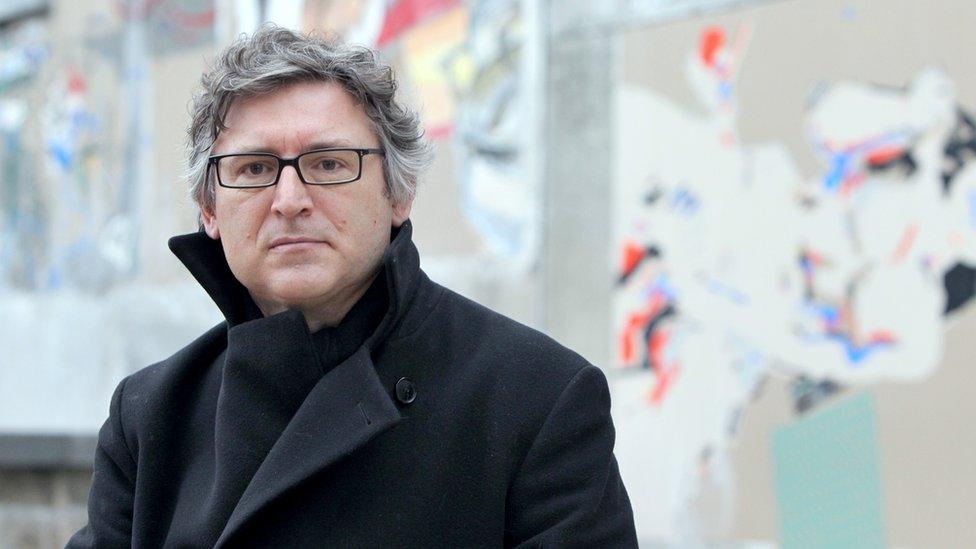
Michel Onfray's comments have appeared in an Islamic State propaganda video
Recriminations are flying in the elevated world of Paris intellectuals, after a leading philosopher said France brought the 13 November attacks on itself.
Michel Onfray tweeted his controversial reaction the day after the atrocities telling followers: "Right and left sowed war against political Islam, and now they are reaping it back."
Widely seen as a maverick among left-wing thinkers, Onfray has long argued that the West should get out of the Arab-Islamic world and let the people there sort out their own problems.
Though in general he is scornful of Islam, his pronouncements have periodically received the dubious endorsement of so-called Islamic State (IS). His tweet even appeared on an IS propaganda video.
According to a French member of IS (speaking of Onfray and quoted by the expert in jihadism David Thomson), "we accept the word of truth, even from the mouth of the worst of the miscreants."
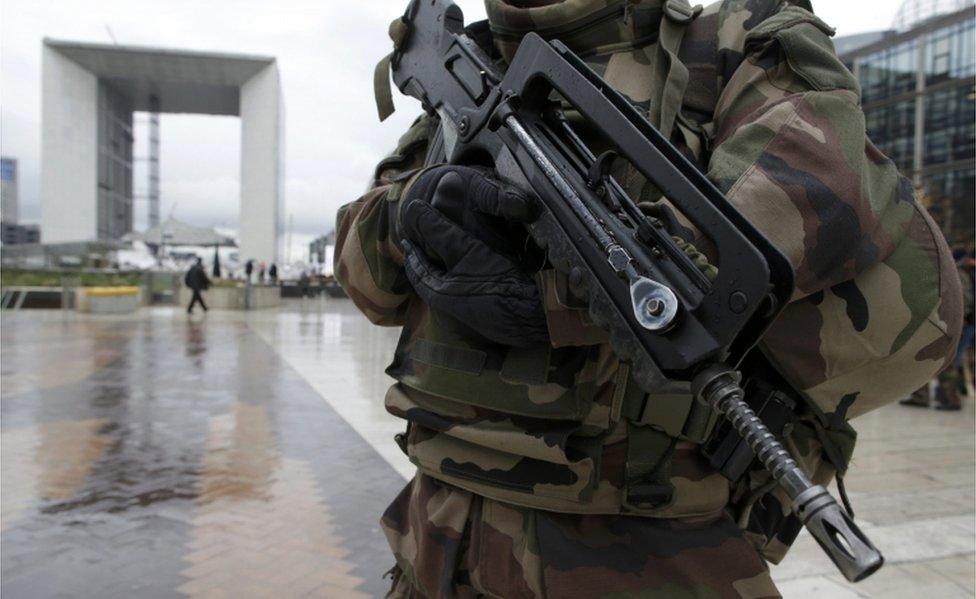
France has deployed hundreds of soldiers across the country in response to the IS attacks in Paris
Onfray of course does not argue that the Paris attacks were justifiable. His view is that they were inevitable, as soon as France joined the United States in trying to impose Western ideas on the Middle East.
As he said in a 2013 interview, also re-broadcast by IS: "Why do we have a problem of terrorism? Muslims are not stupid. We bring war to their homes and kill them by tens or hundreds, and then expect them to be nice.
"They aren't nice, and why should they be?"
But his position after the Paris attacks has been roundly condemned by other French thinkers.
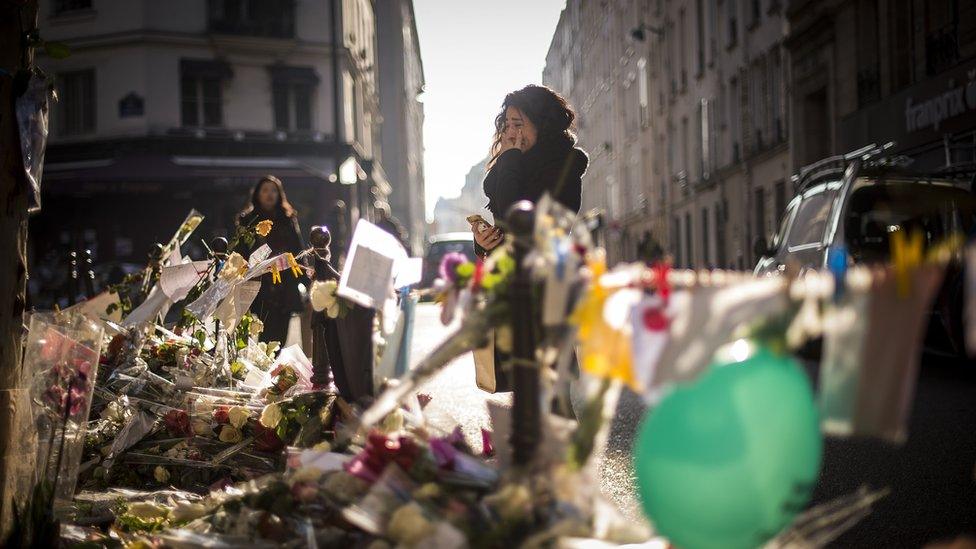
There has been an outpouring of grief and shock over the attacks which killed at least 130 in Paris
Alain Finkelkraut - a philosopher who has views close to Onfray on immigration and integration - said that it was wrong-headed to regard everything that happened in the Islamic world as a reaction to the West.
"We have got to put an end to what I call this 'guilty conscience ethnocentrism'," he said.
"The West has to drop this megalomaniac notion that it is it - the West - that in all circumstances is leading the dance.
"In fact there are other historical agents at work, with their own agendas."

Read more on the Paris attacks

On the left, Laurent Joffrin, editor of Liberation newspaper, accused Onfray of lumping all Muslims together under a single rubric.
"In a naive and dangerously masochistic way, he has taken as his own the argument of the fundamentalists - who repeatedly present their own crimes as a response to western aggression.
"He turns Daesh (IS) - what an honour! - into the heart of the Umma (Muslim community), conferring on this obscurantist and terrorist militia the status of legitimate representative of Islam in the world."
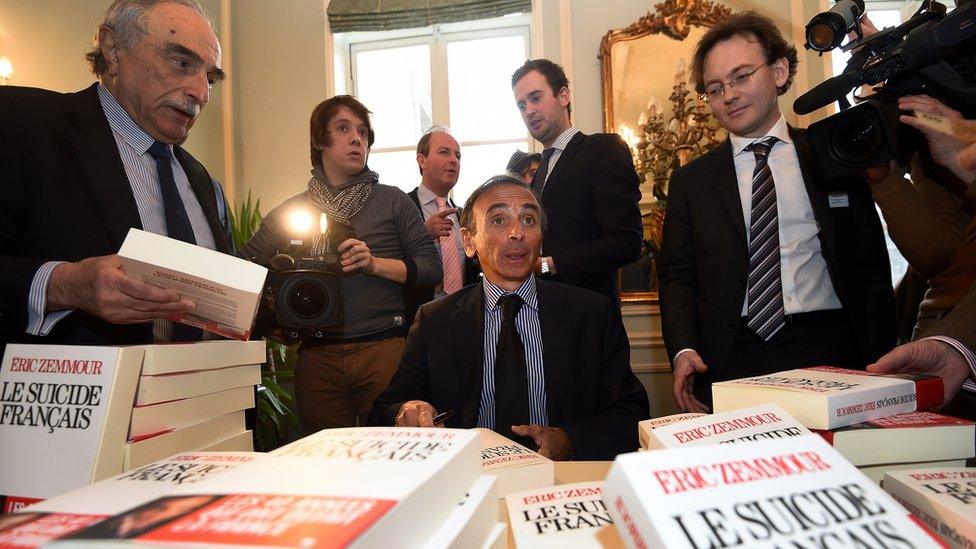
Eric Zemmour, pictured at a book signing for French Suicide, shares some views with Onfray
Intellectuals such as Joffrin have a particular beef against Onfray. This is because in the last couple of years he has, in their view, betrayed the left, endorsing ideas on immigration and Islam put out by a group dubbed 'les neo-reacs' (the new reactionaries).
Les neo-reacs argue that France has failed to address the cultural aspects of immigration from the Arab-Muslim world, and needs to be far more aggressive in pushing its secular values.
They believe in a reassertion of the French nation state.
Among figures associated with the new reactionaries are the journalist Eric Zemmour, whose book French Suicide was a huge hit last year, and the novelist Michel Houellebecq.
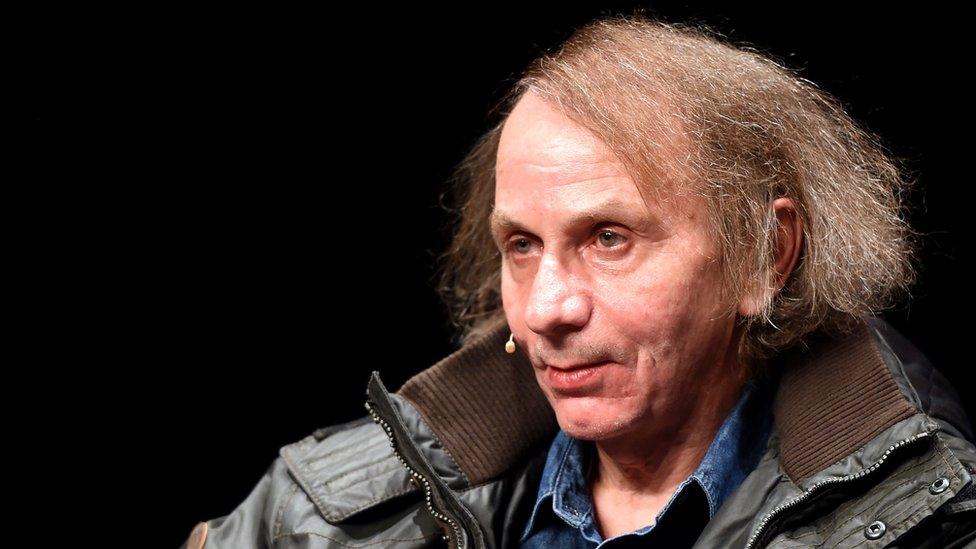
Novelist Michel Houellebecq has caused controversy in France
In his first reaction to the attacks, Houellebecq wrote a coruscating article in the Italian newspaper Corriere della Sera.
"The (French) governments of the last 10 years (or is it 20, or 30?) have failed pitifully, heavily, systematically in their fundamental mission - which is to protect the French population," he said.
"Who was it that announced the cuts in police manpower, reducing them to exasperation, incapable of carrying out their functions?
"Who explained for years that our ancient borders had no longer any meaning, that they were a nauseous symbol of outdated nationalism?"
In his first reaction, Eric Zemmour said (jokingly) that as well as the Syrian city of Raqqa, France should bomb Molenbeek - the Brussels neighbourhood described as a hotbed of jihadism.